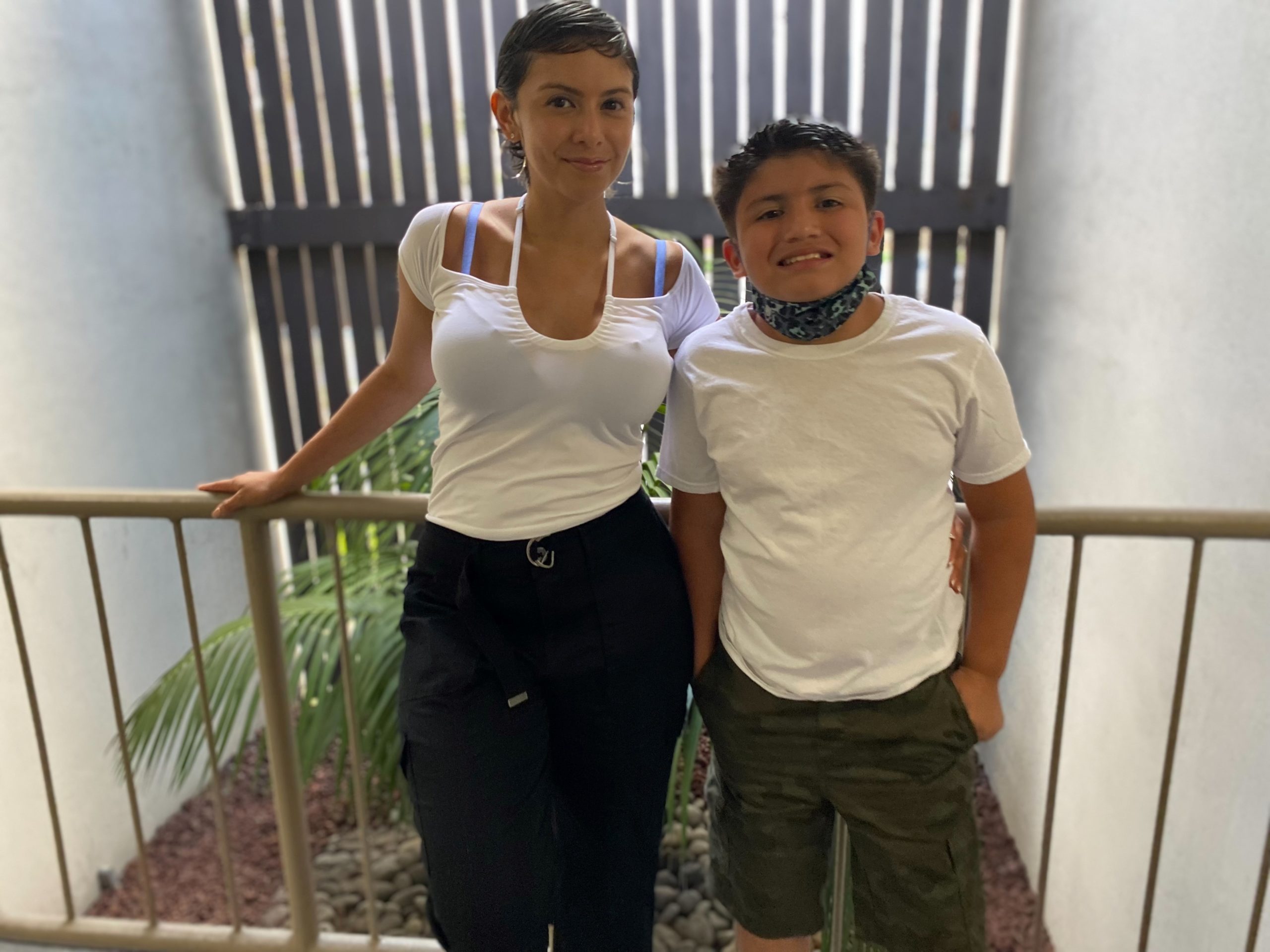
Diagnosed with breast cancer at the age of 28, Charlotte knows how terrifying and stressful it can be to hear you are sick. But rather than address her health concerns and acknowledge what she may be feeling, Charlotte’s doctor immediately asked how she planned to pay for her treatment. A single working mother of a 9-year-old son, Charlotte’s fears and stress levels were quickly amplified as the harsh reality of her expensive cancer treatment began to sink in.
Concerned she would have to sell the house she had worked so hard to buy, Charlotte decided to advocate for herself.
Charlotte learned about the Breast and Cervical Cancer Medicaid (BCCM) program from her sister who had been in contact with the Charlotte Center for Legal Advocacy. BCCM helps eligible women to pay for their breast and/or cervical cancer treatment. (To be eligible, women must be uninsured or have insurance that does not cover the necessary treatment, fall at 250% of the poverty line for their family size, and are a U.S. citizen or have qualified immigration status.) Meeting these requirements, Charlotte proactively applied to the program on her own.
“I applied for the Medicaid program on my own and they kept denying me. I was really stressed during [my treatment]. The hospital was sending me bills and I didn’t know what I was going to do.”
What Charlotte did not know at the time was that to be eligible to apply for BCCM, individuals must meet eligibility criteria for the Breast and Cervical Cancer Control Program (BCCCP). A BCCCP provider must then submit the BCCM application on behalf of that individual. When she submitted the application on her own, Charlotte faced delays and hurdles in the complicated process.
Charlotte contacted the Advocacy Center for help. A Family Support and Health Care staff attorney at the Advocacy Center, Becca Friedman, identified the procedural roadblocks and communicated with the local agency to work towards a resolution. Becca was able to advocate for Charlotte and Charlotte was successfully granted BCCM eligibility.
The peace of mind Becca provided Charlotte as she underwent cancer treatment was critical:
“If I didn’t have an advocate, the experience would have been so much more stressful. Becca kept me updated and followed the process of my application because social services wasn’t updating me directly. Without Becca, I don’t know what I would have done.”
No longer plagued by the financial stress of her treatment, Charlotte was able to focus on what mattered the most: her health, her recovery, and her son.
When asked what she wants people to know about her story, Charlotte quickly responds that she wants to help women going through the same thing.
“When you get the bad news. That would be the first thing I would want to tell people: there is help available, you have options.”
Charlotte is happy to say she is now cancer free, and life is slowly returning to normal. Throughout her cancer treatment, she continued to work and re-enrolled in school. Inspired by her journey, Charlotte is now pursuing a degree in the medical field.
Your support of the Access to Justice Campaign ensures we can fight for neighbors like Charlotte, facing civil legal issues impacting their safety, security, and stability. Donate today to help us keep up the fight.



